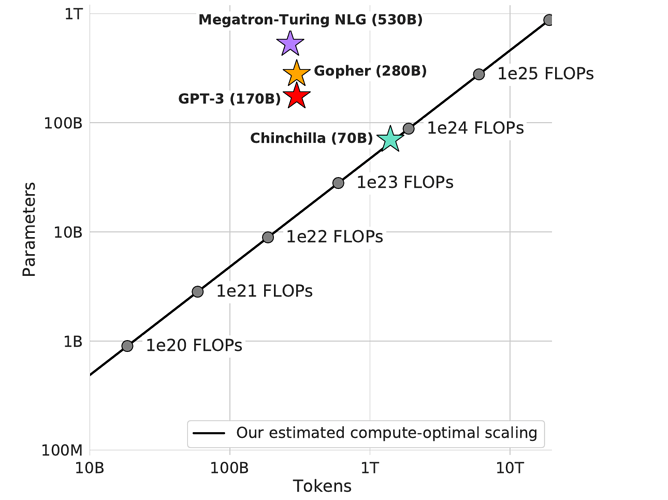We investigate the optimal model and dataset size for training a transformer language model under a given compute budget. We find that current large language models are significantly undertrained, a consequence of the recent focus on scaling language models whilst keeping the amount of training data constant. By training 400 language models ranging from 70 million to 10 billion parameters on 5 to 500 billion tokens, we find that for compute-optimal training, the model size and the training dataset size should be scaled equally: for every doubling of model size the training dataset size should also be doubled. We test this hypothesis by training a more compute-optimal model, Chinchilla, using the same compute budget as Gopher but with 70B parameters and 4x more data. Chinchilla uniformly and significantly outperforms Gopher, GPT-3, Jurassic-1, and Megatron-Turing NLG on a large range of downstream evaluation tasks. As a highlight, Chinchilla reaches an average accuracy of 67.5% on the MMLU benchmark, over a 7% improvement over Gopher.
This paper by DeepMind experiments with the optimal combination of model size and data size when training large language models and finds that the parameter count of LLMs and the number of tokens in the dataset should be scaled equally together.
